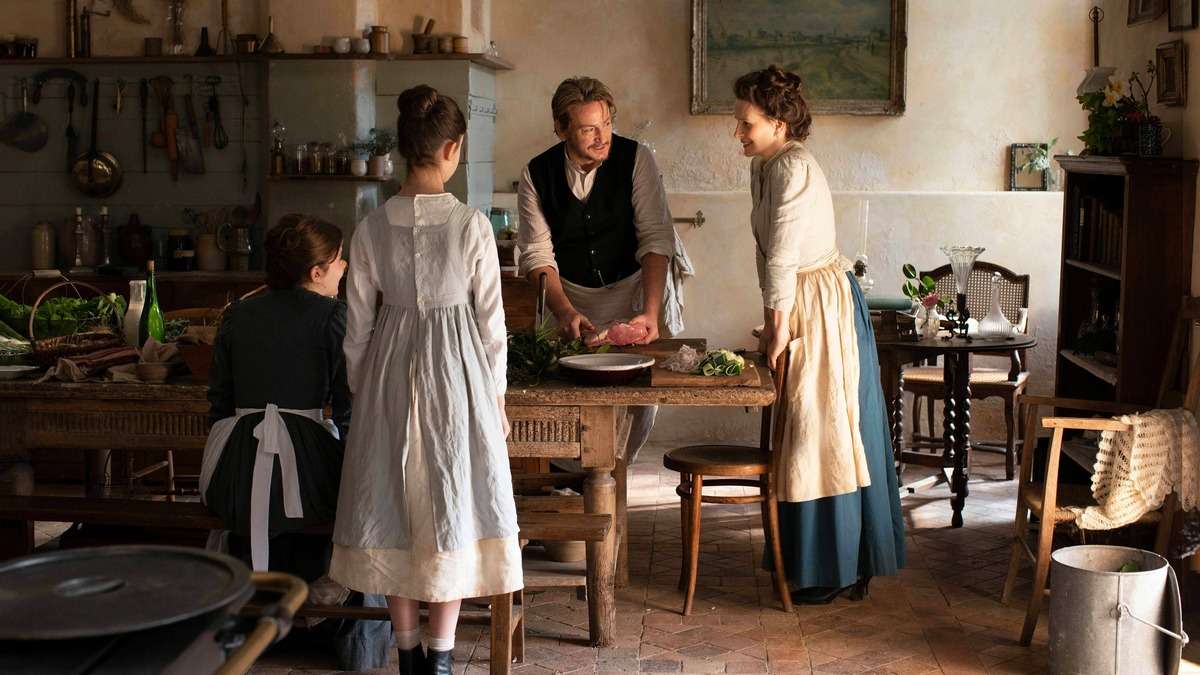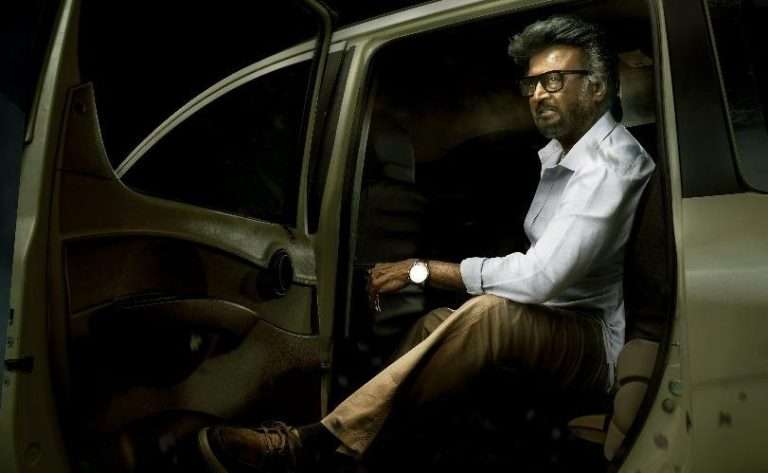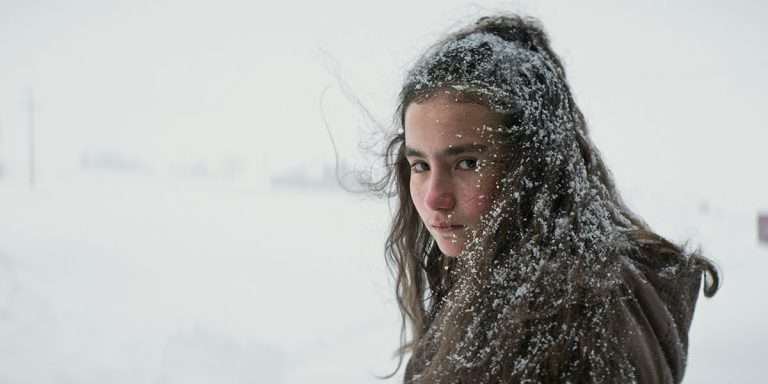The Taste of Things (2023), the French entry to the 2024 Oscars, is unique and well worth watching for whoever wants to learn about French cuisine, food, or the power of passion. There were many surprises and some open skepticism on French social media when it was announced that this year’s entry to the Academy Awards would be more than two hours long and focused on cooking in late 19th century France. It is fair to say “The Taste of Things” (Original title: La passion de Dodin Bouffant) sticks out like a sore thumb amidst the usual dramas and edgy thrillers that represent France in international competitions. But this risky choice is definitely a winner with its impeccable cinematography, endearing romance, and uplifting message about art.
Directed by Trần Anh Hùng, the film tells the story of Dodin Bouffant (Benoît Magimel), a middle-aged French food connoisseur who works hand in hand with his beloved cook, the resourceful Eugénie (national treasure Juliette Binoche). The two live in a remote estate in the countryside, surrounded by the food-loving friends of Dodin, who are always eager to try Eugénie’s latest recipes.
Despite having a complicated relationship, the pair are long-time lovers and morph into parental figures as they attempt to train Pauline (Bonnie Chagneau-Ravoire), a young girl with an exceptional gift for cooking. They are determined to make a chef out of her, but Pauline’s farmer parents are worried about seeing their daughter embrace such a demanding career. Before long, Dodin has another issue on his hands: Eugénie’s health seems to be weakening, and no doctor can properly diagnose her, jeopardizing the entire household’s peaceful existence.
A summary never does justice to a great movie, and this one is no exception. It is almost impossible to correctly transcribe the film’s poetic atmosphere or to describe its true protagonist: food. Food steals the show in “The Taste of Things,” whether it is on screen being prepared and tasted or simply as an aftertaste imagined by Dodin and Eugénie. Viewers are invited to step into the world of these two brilliant cooks, and their passion is contagious.
Their cooking is elevated to the rank of art by the movie’s flawless cinematography and its perfect direction. Trần Anh Hùng won the prestigious Best Director Award at the French Palme d’Or competition and paid a vibrant homage to art in all its shapes and forms. No matter how unfamiliar viewers might be with cooking, it is impossible not to get sucked into the couple’s world. This is thanks to the director’s work: his mastery of warm lighting and shot composition is close to perfection, to the point where many scenes look like French Impressionist paintings from the time, and even the nature surrounding Dodin’s estate plays a part in the story.

This helps to give the movie an eerie, almost nostalgic atmosphere, and “The Taste of Things” does feel like a folktale: an ode to creativity and dedication in which two complete strangers somehow become our friends. Loosely based on the life of French cook Jean Anthelme Brillat Savarin, “The Taste of Things” undeniably has a slow pace, which could put off viewers who are not used to watching slices of life.
Yet this is a deliberate choice: the film defies our usual sense of time and takes as long as needed to deliver its story – much like the time required for a dish to be perfectly cooked. In fact, it might be the antithesis of last year’s blockbuster “Napoleon” (2023): here, you will not find any significant events from French History, nor any special effects or epic battles.
Instead, the movie is centered on the endearing relationship between Dodin and Eugénie, which sees the latter obstinately refuse to get married. Their love story is simple but touching and will resonate far beyond French borders. When the cook’s health degrades, Dodin’s anxiety is not only understandable but also shared by the viewers. For a film seemingly all about food, emotions run high and never feel forced.
“The Taste of Things” is also a sensory experience: though I have not read much about its sound design, it does a perfect job at making the dishes sound tasty – no matter how unusual the recipes might look. When the camera lovingly pans over the plethoric poultry, vegetables, soups, and desserts, French food enthusiasts will be reminded of some traditional dishes and very much perplexed by others. But even when the menu does not seem appetizing by modern standards, Eugénie and Dodin’s skills never fail to deliver. Once again, Trần Anh Hùng’s direction stands out thanks to his gorgeous, varied shots of dishes being baked, cut, cooked, and served in more ways than anyone thought possible.
Food is always present, but the menu is never the same, and there is enough here to satiate the eye and prevent any boredom. Michelin-star winner and famous French chef Pierre Gagnaire acted as a consultant on set and helped the director to create dishes that were both realistic for the time period and appealing. The end product is a movie that is nothing short of a treat for film (and food) lovers: “The Taste of Things” takes its time to achieve a perfect balance between sweet and sour.




![The Policeman’s Lineage [2022] Review: Crime Eat Crime in a Dog Eat Dog World](https://79468c92.delivery.rocketcdn.me/wp-content/uploads/2022/06/The-Policemans-Lineage-Movie-Review-1-768x512.jpeg)

![Nasumice [2018] Review: A Beautifully shot film that never rises above its ideas](https://79468c92.delivery.rocketcdn.me/wp-content/uploads/2020/11/Nasumice-Adrift-highonfilms-1-768x448.jpg)